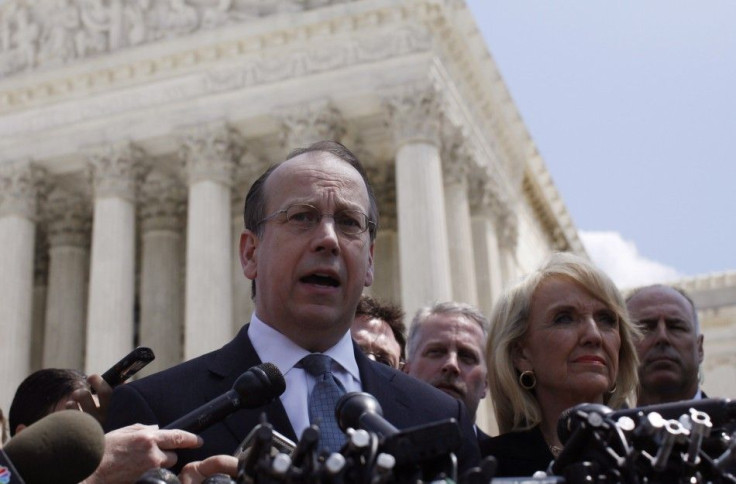Obama Attorney?s Challenge to Arizona Immigration Law Baffles Justices

The U.S. Supreme Court Wednesday showed support for a key component of Arizona's controversial immigration law that requires local police to check the immigration status of people suspected of being in the country illegally, rejecting arguments from the Obama administration that left some justices confused.
The most controversial aspect of Arizona's law, known as S.B. 1070, would let law enforcement detain anyone suspected of being an undocumented resident, and inquire about the immigration status of those stopped or arrested.
The Obama administration, represented by Solicitor General Donald Verrilli, has challenged four major provisions of Arizona's enforcement law as intruding on the federal government's turf by turning local law enforcement into de facto immigration agents.
With Justice Elena Kagan, a recent U.S. solicitor general, recusing herself, the Obama administration needs at least four votes to ensure a lower appeals court ruling against Arizona stands. Several key justices, however, would not swallow Verrilli's argument that putting tough immigration enforcement into state law forces local police to respond to the priorities set by the state government, as opposed to the federal government.
You can see it's not selling very well, said Justice Sonia Sotomayor, who said she was terribly confused by Verrilli's argument.
Justice Samuel Alito was similarly baffled by Verrilli's comment that the line is mandatory versus discretionary when it comes to the constitutionality of allowing police to question the status of a suspected undocumented immigrant.
That's what I can't understand, Alito said. You seem to be saying that what's wrong with the Arizona law is that the Arizona Legislature is trying to control what its employees are doing.
Chief Justice John Roberts said I don't see the problem with allowing local police officers to obtain information such as immigration status, a regular occurrence around the country.
Roberts added that he did not consider an Arizona police officer's check of a person's immigration status an effort to enforce federal law.
It is an effort to let you know about violations of federal law, Roberts said. All that has to do with immigration law is whether or not they can ask the federal government to find out if this person is illegal or not, and then leave it up to you.
It seems to me that the federal government, Roberts added, just doesn't want to know who is here illegally or not.
Meanwhile, Justice Antonin Scalia was among those in the court's conservative wing who articulated a constitutional right for states to police their borders, saying Arizona was closely following federal immigration law.
Arizona is not trying to kick out anybody that the federal government has not already said does not belong here, Scalia said.
© Copyright IBTimes 2024. All rights reserved.











